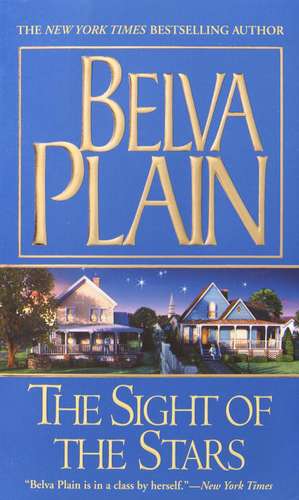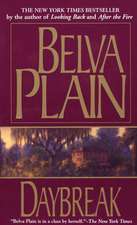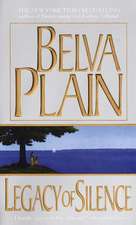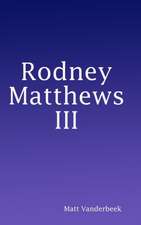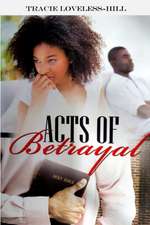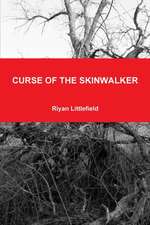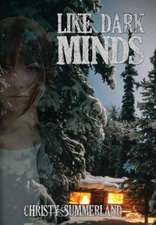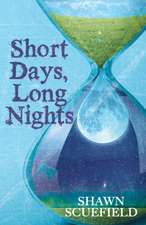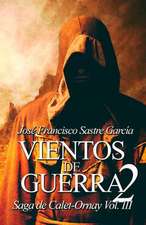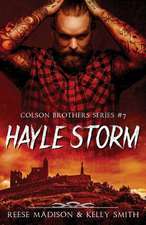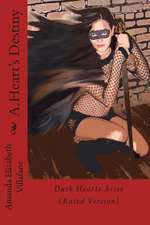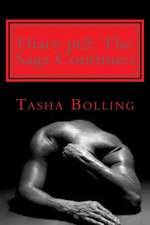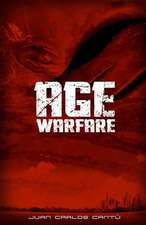The Sight of the Stars
Autor Belva Plainen Limba Engleză Paperback – 31 oct 2004
Dressed in a brand-new suit, with one hundred and fifty dollars in his pocket, Adam Arnring says good-bye to his family and boards a train for the fabled West. The year is 1907. Adam is nineteen years old, a young man with stars in his eyes who has always dreamed of a future in the great open spaces of America. Now, far from his New Jersey home, he takes the first step toward attaining that dream, landing a job in a small department store in a booming Texas town. Here he meets a woman who excites him beyond all measure. The exquisite, untouchable Emma Rothirsch lives in a world whose doors are firmly closed to him. But Adam is a man willing to take great risks to get what he wants.
One is Emma. The other is to build a lasting business enterprise that will live on through his children and grandchildren. But just when Adam’s dreams are within reach, fate intervenes. Tragedy strikes from the trenches of World War I, setting in motion a series of events that echo down through the years. The owner of a prospering department store and the head of a growing family, Adam succumbs to a moment of weakness that culminates in an unforgivable act of betrayal. And now, as another generation prepares to take its rightful place in the family’s legendary empire, the tenuous threads of the Arnrings’ past begin to unravel, revealing a shattering secret that reaches back nearly a century.
Across a teeming canvas of history, through world wars and the close of a century, The Sight of the Stars tells a deeply affecting story of family and forgiveness, guilt and redemption. Brimming with the emotional depth and moral complexity we have come to expect from this incomparable storyteller, The Sight of the Stars is about what happens when we dare to dream, and the moments that can change families forever.
From the Hardcover edition.
Preț: 48.48 lei
Nou
Puncte Express: 73
Preț estimativ în valută:
9.28€ • 9.92$ • 7.73£
9.28€ • 9.92$ • 7.73£
Carte disponibilă
Livrare economică 27 martie-10 aprilie
Preluare comenzi: 021 569.72.76
Specificații
ISBN-13: 9780440241249
ISBN-10: 0440241243
Pagini: 352
Dimensiuni: 109 x 175 x 25 mm
Greutate: 0.18 kg
Editura: dell
ISBN-10: 0440241243
Pagini: 352
Dimensiuni: 109 x 175 x 25 mm
Greutate: 0.18 kg
Editura: dell
Notă biografică
Belva Plain captured readers' hearts with her first novel, Evergreen, which Delacorte published more than 30 years ago. It topped the New York Times best-seller list for 41 weeks and aired as an NBC-TV miniseries. In total, more than 20 of her books have been New York Times best sellers.
Before becoming a novelist, Belva Plain wrote short stories for many major magazines, but taking care of a husband and three children did not give her the time to concentrate on the novel she had always wanted to write. When she looked back and said she didn't have the time, she felt as though she had been making excuses. In retrospect, she said, "I didn't make the time." But, she reminded us, during the era that she was raising her family, women were supposed to concentrate only on their children. Today 30 million copies of her books are in print.
A Barnard College graduate who majored in history, Belva Plain enjoyed a wonderful marriage of more than 40 years to Irving Plain, an ophthalmologist. Widowed for more than 25 years, Ms. Plain continued to reside in New Jersey, where she and her husband had raised their family and which was still home to her nearby children and grandchildren until her death in October 2010.
From the Hardcover edition.
Before becoming a novelist, Belva Plain wrote short stories for many major magazines, but taking care of a husband and three children did not give her the time to concentrate on the novel she had always wanted to write. When she looked back and said she didn't have the time, she felt as though she had been making excuses. In retrospect, she said, "I didn't make the time." But, she reminded us, during the era that she was raising her family, women were supposed to concentrate only on their children. Today 30 million copies of her books are in print.
A Barnard College graduate who majored in history, Belva Plain enjoyed a wonderful marriage of more than 40 years to Irving Plain, an ophthalmologist. Widowed for more than 25 years, Ms. Plain continued to reside in New Jersey, where she and her husband had raised their family and which was still home to her nearby children and grandchildren until her death in October 2010.
From the Hardcover edition.
Extras
Chapter 1
1900
He would always remember the weather that day. By nightfall, the rain that had started that morning was still whirling across the little town in New Jersey that lay on the brink of the Atlantic Ocean. You could imagine yourself, Adam thought, on a pirate ship with Long John Silver, sailing through high seas on the way to Treasure Island. Meanwhile, you were safe in the kitchen at the supper table next to the coal stove.
"Have some more stew, Adam. You must be tired after helping Pa in the store all afternoon."
That was Rachel, whom Pa had married after Adam's mother died. She was good to him, and he was fond of her, but he did wish that she wouldn't always be urging him to eat.
Pa laughed. "Such a typical Jewish mother, stuffing the children with food. He's not tired. He's a strong man. In three days he'll be thirteen, a man of the new century. Nineteen hundred, Adam! How do you feel about that?"
Right now the only thing he felt was relief that the afternoon was over. He was finished with baskets and boxes and bags, loaded with just about everything a human being might ever want to put in his stomach: coffee, sugar, whiskey, and tea, carrots, potatoes, cookies and toffee candy; loaded too with the things men and women wear, the breeches, corsets, fichus, neckties, aprons, and galoshes. One thing was sure, though; one thing he knew. He was not going to follow his father and work in the store when he grew up. Maybe one of the other boys would be willing, but not he.
They were odd little brothers--half brothers--different from him, and so different from each other that Adam had to wonder what makes people who they are. What makes Jonathan, at four, so bright and happy that Adam really doesn't mind having to watch over him occasionally? What made Leo, at nine, such a nuisance, with his fresh mouth and temper tantrums that sometimes make you wish a stranger would come along and adopt him?
Still, you have to feel sorry for him, poor kid. With a face shaped like an egg, a long curve at the top where the forehead seems to bulge, and almost no chin at the bottom. He's too short and too fat. He always stands alone in the schoolyard. His only friend is Bobby Nishikawa, whose family owns the Japanese restaurant called Fugi on Main Street. Leo's too shy, too smart, and too clumsy. I've tried and tried to show him how to play ball, Adam thought, but I've given up. He only gets angry at me.
All of a sudden, Leo interrupted his thoughts. "Adam's a bastard! Did you all know Adam's a bastard?"
Rachel's and Pa's coffee cups clattered onto their saucers. "What?" Rachel exclaimed. "What in heaven's name are you saying, Leo?"
"Nasty," Pa scolded. "Decent people don't talk like that."
"Yes, they do. I heard them." Leo, now the center of attention, hurried along with his story. "They said it at the basketball game in the gym. Those two men behind me said it. When Adam put the ball in the basket and won the game, one said, 'It's too bad he's a bastard, a smart, good-looking boy like that.' I heard him, Pa."
"Ridiculous! He ought to be ashamed of himself, whoever he is."
Was I seven in second grade, or maybe only six in first grade, when a big fifth-grader told one of her friends that Adam Arnring was a bastard? The way the word was spoken, and the laughing expression on her face told him that it was a shameful thing she was calling him--shameful like throwing up in the schoolyard, as he had done one day.
"I'm not!" he had protested.
"Yes, you are. Our neighbor told my mother. I heard her."
"Absolutely not," Pa had said. "That's nonsense. Don't even think about it."
So he had not thought about it. How was it, though, that he so clearly remembered it now?
"You're going to be punished," Rachel said sternly, "if you ever use that word again, Leo."
"I don't care."
"You'll listen to me, or you'll care very much. Now be a good boy and give these scraps to Arthur for his dinner."
Hearing his name, the old dog, a sturdy mixture of collie mother and unknown father, raised his head as if to ask a question with his mild brown eyes.
"I'll do it," Adam said promptly.
For no reason that he could explain, there came a rush of tenderness for this dependent creature who trusted them to care for him and never to hurt him. And setting the bowl of food before Arthur, Adam stroked his head.
As if nothing at all had happened at the supper table a moment before, Pa reminded him that it was Saturday. "I've put the washtub in the pantry, and I'm sure that kettle on the stove is already hot enough so you can have your bath, Adam."
"Not tonight, Pa. I'm more tired than I thought I was. I'm going up to bed."
Neither Rachel nor Pa said anything. Did they not wonder why he was going upstairs so early? Oh, they know there is something terribly wrong!
In the attic, where the peaked roof was so slanted that one could only stand upright in the center of the room, Adam took off his shirt and pants, lit the oil lamp, lay down with his book, and did not read. Rain drummed on the single window. The room was chilly, and covered as he was with his flannel underwear and the heavy quilt, he felt not merely cold, but naked, as if exposed to the world.
He had never thought much about his mother. She was dead, that was all. People died. She died in a diphtheria epidemic when he was three weeks old. Once in a while, a very long while, he looked at photographs of people he had never known and never would know: Pa's parents standing in front of a small wooden house in a country on the other side of the ocean; Pa and a young woman standing in front of a stone wall, she very small and slender beneath an enormous feathered hat.
Illegitimate. Bastard. Can those two people have done what he is now thinking about? When a person has reached thirteen, he is a man and he has learned a few things. A lot of his friends have older brothers who hire a buckboard on Saturday night to take them five miles out on the road to Gracie's house, Gracie being a fat old lady who lives with ten or twelve young ladies. And there the brothers "do things." You have to have some money when you go there. He understands.
But what husbands do with their wives is very different. They have babies because they are married. If they have babies without being married, it is like stealing. To have a bastard is a shameful thing, like walking out of Pa's store with a package hidden under your coat, without paying for it. You could never imagine Pa stealing anything. Pa wouldn't lie to him. Those girls in school and those men in the gym--they might lie, but Pa never would.
Here he was now coming up the stairs, his heavy tread making the old steps creak. When he walked in, he sat down at the foot of the bed, as if this was something he did every night instead of for the first time.
"Reading again, my Adam? What book is it now?"
"The Last of the Mohicans. It's about Indians."
"There still were a few Indians in Georgia when I first came to America. Most of them had long ago been chased out, poor people. Have I ever told you about them?"
Adam could have said that he knew the whole story almost by heart. He knew about the trip north because the South was so poor after the Civil War; he knew the tale of Whitey the horse and the wagon Pa had bought as soon as he had saved a few dollars; he knew about the arrival here in town and the opening of Simon Arnring's first little store. But he only nodded his head now, and waited.
"Nineteen hundred. Everything's going to be different. I don't know how, but it will be. That's what they say. After a while, I suppose I'll have to put in a telephone, won't I? They say that the price will be coming down pretty soon. If it doesn't, we'll just do without. Pennies make dollars. The world's been getting along pretty well all these years without this new stuff, autos and telephones and electric lights and whatnot. Yes, pennies make dollars."
Pa was frugal, but never stingy. Simon Arnring was known to be charitable beyond his means, and lenient with his poorest customers. Adam was aware of all that; he was also aware that Pa had not climbed upstairs to talk about either the Civil War in Georgia or the new century, so he nodded and waited again.
Pa had a way of talking in jerks. People said he was a man of few words, which was true, except for the rare mood when words would suddenly start to roll from his tongue . . . and then, just as suddenly, stop.
"I think I hear Arthur struggling on the stairs. He can hardly pull himself up. At his age--"
Pa stared at the floor. There came a silence, vaguely sad and thick as a substance you might feel with your fingers. The silence lasted long enough for Arthur to come in, stretch out, and settle into his usual doze. Pa coughed and cleared his throat, began to speak, then stopped. Eventually he put on a bright expression and began afresh.
"I've never told you, never told you or anybody, that you wouldn't have been born if not for Arthur, have I?"
Adam thought: If he's come up here to amuse me with a dog story, I don't want to hear it. He should know better.
"It's a fairly long story. I can tell you if you want to hear it."
And hearing the scorn in his own voice, Adam repeated, "If it weren't for the dog, I wouldn't have been born? I don't understand. So I think I ought to hear it."
"Well, then. On the very last day before I opened my store here, I had to deliver something at a farm. It was spring, and terribly hot for the season. The horse was tired, so I walked him slowly. That's how I came to see this terrible thing alongside the road, this dog that had just given birth. The pups, five or six of them, each hardly bigger than a mouse, were lying half dead beside the poor mother. She was too weak to move, panting there in the broiling sun, with her tongue hanging out. Some rotter who didn't deserve to live had dropped her off in the woods. God knows how long she had been there, all night maybe. So I picked her up and put her, with the pups, in the wagon, getting myself filthy, but I couldn't leave the poor creature like that. At the next farm I stopped and asked for water to cool them. And a young girl came out to help me. Eileen, she was. Eileen Murphy."
All this Adam already knew. Eileen was his mother. He knew about his birth in the room above the store, about the diphtheria epidemic. A sad story, too sad to tell again.
"I brought the pups and the mother back home with me and named her Queen. All the pups except Arthur died the next day. Queen, I think, must have been pretty old, because she only lived another year. At least she spent it in a good home."
Pa smiled, not out toward Adam, but inwardly, to himself. A secret smile, the kind people have when they are remembering something that nobody else knows.
"Eileen came to the store with a baby bottle of milk in case Queen might not have enough for Arthur. She's the one who gave him his name. Chester Alan Arthur was one of our presidents. She was patriotic." He stopped. "I have to collect my thoughts. It seems so long ago now. I had never met anyone like her. So delicate, so gentle, she was. She loved flowers, loved to arrange them. On the Fourth of July she put red, white, and blue bouquets in my windows. A gentle soul, too trusting . . . I don't know. Her father was a laborer on that farm where I found her. Worked hard, I guess, but not hard enough to keep him away from the saloons. He was tough, no good at all. I used to wonder how he ever had a daughter like her. I never found out, never knew much about her people, only that she was the youngest, the last one at home."
And again there came that secret smile, so sad and secret that Adam, for all his own confusion of anger, curiosity, and distress, still felt a kind of pity.
"We became friends. Sometimes when the store wasn't busy, we'd have a cup of coffee together. She had never been anywhere or read anything about other places. So I told her about where I came from in Europe, and about the tiny village where we all spoke German. She began to come more often. She used to tell her father that she would meet some friends at the soda fountain in the drugstore, while he was at the saloon, but instead she would come to my store. It was open most evenings and was probably a livelier place than the lone farm. What else besides the dog could the attraction be? I was a man almost thirty, and she was a girl of eighteen."
Something Adam feared to hear and yet needed to hear was coming. He waited.
"She seemed like such a child, not much older than you are now. Well, five years. But then, you have always been a whole lot older than your years."
Now it was coming, the thing Pa really wanted to tell him. At the same time, he seemed uncertain about whether he ought to tell it.
"One evening when she was there, her father came raging into the store. His rage was out of control. He called his daughter a dirty name. He threatened me with his fist. I tried to protect Eileen and managed fairly well, although he did land one blow on her cheek before I was able to shove him out onto the street and into his buggy.
"My heart ached for her. She was a proper young lady, and he had shamed her before all of the people in the store. Well, I did what anyone would do to comfort her. I washed her face and put some salve on the bruise. I gave her my bed upstairs and put a cot in the hall for myself. Her father came again the next day as I had suspected he would, but she stayed upstairs out of sight. I had a few friends in the police force, and I guess they had plenty to say to him, because after a few days he stopped coming. I heard that the farm where he worked had been sold, and he was no longer needed. So the next thing I heard was that he had left town and perhaps left the state, God knows where to . . ."
From the Hardcover edition.
1900
He would always remember the weather that day. By nightfall, the rain that had started that morning was still whirling across the little town in New Jersey that lay on the brink of the Atlantic Ocean. You could imagine yourself, Adam thought, on a pirate ship with Long John Silver, sailing through high seas on the way to Treasure Island. Meanwhile, you were safe in the kitchen at the supper table next to the coal stove.
"Have some more stew, Adam. You must be tired after helping Pa in the store all afternoon."
That was Rachel, whom Pa had married after Adam's mother died. She was good to him, and he was fond of her, but he did wish that she wouldn't always be urging him to eat.
Pa laughed. "Such a typical Jewish mother, stuffing the children with food. He's not tired. He's a strong man. In three days he'll be thirteen, a man of the new century. Nineteen hundred, Adam! How do you feel about that?"
Right now the only thing he felt was relief that the afternoon was over. He was finished with baskets and boxes and bags, loaded with just about everything a human being might ever want to put in his stomach: coffee, sugar, whiskey, and tea, carrots, potatoes, cookies and toffee candy; loaded too with the things men and women wear, the breeches, corsets, fichus, neckties, aprons, and galoshes. One thing was sure, though; one thing he knew. He was not going to follow his father and work in the store when he grew up. Maybe one of the other boys would be willing, but not he.
They were odd little brothers--half brothers--different from him, and so different from each other that Adam had to wonder what makes people who they are. What makes Jonathan, at four, so bright and happy that Adam really doesn't mind having to watch over him occasionally? What made Leo, at nine, such a nuisance, with his fresh mouth and temper tantrums that sometimes make you wish a stranger would come along and adopt him?
Still, you have to feel sorry for him, poor kid. With a face shaped like an egg, a long curve at the top where the forehead seems to bulge, and almost no chin at the bottom. He's too short and too fat. He always stands alone in the schoolyard. His only friend is Bobby Nishikawa, whose family owns the Japanese restaurant called Fugi on Main Street. Leo's too shy, too smart, and too clumsy. I've tried and tried to show him how to play ball, Adam thought, but I've given up. He only gets angry at me.
All of a sudden, Leo interrupted his thoughts. "Adam's a bastard! Did you all know Adam's a bastard?"
Rachel's and Pa's coffee cups clattered onto their saucers. "What?" Rachel exclaimed. "What in heaven's name are you saying, Leo?"
"Nasty," Pa scolded. "Decent people don't talk like that."
"Yes, they do. I heard them." Leo, now the center of attention, hurried along with his story. "They said it at the basketball game in the gym. Those two men behind me said it. When Adam put the ball in the basket and won the game, one said, 'It's too bad he's a bastard, a smart, good-looking boy like that.' I heard him, Pa."
"Ridiculous! He ought to be ashamed of himself, whoever he is."
Was I seven in second grade, or maybe only six in first grade, when a big fifth-grader told one of her friends that Adam Arnring was a bastard? The way the word was spoken, and the laughing expression on her face told him that it was a shameful thing she was calling him--shameful like throwing up in the schoolyard, as he had done one day.
"I'm not!" he had protested.
"Yes, you are. Our neighbor told my mother. I heard her."
"Absolutely not," Pa had said. "That's nonsense. Don't even think about it."
So he had not thought about it. How was it, though, that he so clearly remembered it now?
"You're going to be punished," Rachel said sternly, "if you ever use that word again, Leo."
"I don't care."
"You'll listen to me, or you'll care very much. Now be a good boy and give these scraps to Arthur for his dinner."
Hearing his name, the old dog, a sturdy mixture of collie mother and unknown father, raised his head as if to ask a question with his mild brown eyes.
"I'll do it," Adam said promptly.
For no reason that he could explain, there came a rush of tenderness for this dependent creature who trusted them to care for him and never to hurt him. And setting the bowl of food before Arthur, Adam stroked his head.
As if nothing at all had happened at the supper table a moment before, Pa reminded him that it was Saturday. "I've put the washtub in the pantry, and I'm sure that kettle on the stove is already hot enough so you can have your bath, Adam."
"Not tonight, Pa. I'm more tired than I thought I was. I'm going up to bed."
Neither Rachel nor Pa said anything. Did they not wonder why he was going upstairs so early? Oh, they know there is something terribly wrong!
In the attic, where the peaked roof was so slanted that one could only stand upright in the center of the room, Adam took off his shirt and pants, lit the oil lamp, lay down with his book, and did not read. Rain drummed on the single window. The room was chilly, and covered as he was with his flannel underwear and the heavy quilt, he felt not merely cold, but naked, as if exposed to the world.
He had never thought much about his mother. She was dead, that was all. People died. She died in a diphtheria epidemic when he was three weeks old. Once in a while, a very long while, he looked at photographs of people he had never known and never would know: Pa's parents standing in front of a small wooden house in a country on the other side of the ocean; Pa and a young woman standing in front of a stone wall, she very small and slender beneath an enormous feathered hat.
Illegitimate. Bastard. Can those two people have done what he is now thinking about? When a person has reached thirteen, he is a man and he has learned a few things. A lot of his friends have older brothers who hire a buckboard on Saturday night to take them five miles out on the road to Gracie's house, Gracie being a fat old lady who lives with ten or twelve young ladies. And there the brothers "do things." You have to have some money when you go there. He understands.
But what husbands do with their wives is very different. They have babies because they are married. If they have babies without being married, it is like stealing. To have a bastard is a shameful thing, like walking out of Pa's store with a package hidden under your coat, without paying for it. You could never imagine Pa stealing anything. Pa wouldn't lie to him. Those girls in school and those men in the gym--they might lie, but Pa never would.
Here he was now coming up the stairs, his heavy tread making the old steps creak. When he walked in, he sat down at the foot of the bed, as if this was something he did every night instead of for the first time.
"Reading again, my Adam? What book is it now?"
"The Last of the Mohicans. It's about Indians."
"There still were a few Indians in Georgia when I first came to America. Most of them had long ago been chased out, poor people. Have I ever told you about them?"
Adam could have said that he knew the whole story almost by heart. He knew about the trip north because the South was so poor after the Civil War; he knew the tale of Whitey the horse and the wagon Pa had bought as soon as he had saved a few dollars; he knew about the arrival here in town and the opening of Simon Arnring's first little store. But he only nodded his head now, and waited.
"Nineteen hundred. Everything's going to be different. I don't know how, but it will be. That's what they say. After a while, I suppose I'll have to put in a telephone, won't I? They say that the price will be coming down pretty soon. If it doesn't, we'll just do without. Pennies make dollars. The world's been getting along pretty well all these years without this new stuff, autos and telephones and electric lights and whatnot. Yes, pennies make dollars."
Pa was frugal, but never stingy. Simon Arnring was known to be charitable beyond his means, and lenient with his poorest customers. Adam was aware of all that; he was also aware that Pa had not climbed upstairs to talk about either the Civil War in Georgia or the new century, so he nodded and waited again.
Pa had a way of talking in jerks. People said he was a man of few words, which was true, except for the rare mood when words would suddenly start to roll from his tongue . . . and then, just as suddenly, stop.
"I think I hear Arthur struggling on the stairs. He can hardly pull himself up. At his age--"
Pa stared at the floor. There came a silence, vaguely sad and thick as a substance you might feel with your fingers. The silence lasted long enough for Arthur to come in, stretch out, and settle into his usual doze. Pa coughed and cleared his throat, began to speak, then stopped. Eventually he put on a bright expression and began afresh.
"I've never told you, never told you or anybody, that you wouldn't have been born if not for Arthur, have I?"
Adam thought: If he's come up here to amuse me with a dog story, I don't want to hear it. He should know better.
"It's a fairly long story. I can tell you if you want to hear it."
And hearing the scorn in his own voice, Adam repeated, "If it weren't for the dog, I wouldn't have been born? I don't understand. So I think I ought to hear it."
"Well, then. On the very last day before I opened my store here, I had to deliver something at a farm. It was spring, and terribly hot for the season. The horse was tired, so I walked him slowly. That's how I came to see this terrible thing alongside the road, this dog that had just given birth. The pups, five or six of them, each hardly bigger than a mouse, were lying half dead beside the poor mother. She was too weak to move, panting there in the broiling sun, with her tongue hanging out. Some rotter who didn't deserve to live had dropped her off in the woods. God knows how long she had been there, all night maybe. So I picked her up and put her, with the pups, in the wagon, getting myself filthy, but I couldn't leave the poor creature like that. At the next farm I stopped and asked for water to cool them. And a young girl came out to help me. Eileen, she was. Eileen Murphy."
All this Adam already knew. Eileen was his mother. He knew about his birth in the room above the store, about the diphtheria epidemic. A sad story, too sad to tell again.
"I brought the pups and the mother back home with me and named her Queen. All the pups except Arthur died the next day. Queen, I think, must have been pretty old, because she only lived another year. At least she spent it in a good home."
Pa smiled, not out toward Adam, but inwardly, to himself. A secret smile, the kind people have when they are remembering something that nobody else knows.
"Eileen came to the store with a baby bottle of milk in case Queen might not have enough for Arthur. She's the one who gave him his name. Chester Alan Arthur was one of our presidents. She was patriotic." He stopped. "I have to collect my thoughts. It seems so long ago now. I had never met anyone like her. So delicate, so gentle, she was. She loved flowers, loved to arrange them. On the Fourth of July she put red, white, and blue bouquets in my windows. A gentle soul, too trusting . . . I don't know. Her father was a laborer on that farm where I found her. Worked hard, I guess, but not hard enough to keep him away from the saloons. He was tough, no good at all. I used to wonder how he ever had a daughter like her. I never found out, never knew much about her people, only that she was the youngest, the last one at home."
And again there came that secret smile, so sad and secret that Adam, for all his own confusion of anger, curiosity, and distress, still felt a kind of pity.
"We became friends. Sometimes when the store wasn't busy, we'd have a cup of coffee together. She had never been anywhere or read anything about other places. So I told her about where I came from in Europe, and about the tiny village where we all spoke German. She began to come more often. She used to tell her father that she would meet some friends at the soda fountain in the drugstore, while he was at the saloon, but instead she would come to my store. It was open most evenings and was probably a livelier place than the lone farm. What else besides the dog could the attraction be? I was a man almost thirty, and she was a girl of eighteen."
Something Adam feared to hear and yet needed to hear was coming. He waited.
"She seemed like such a child, not much older than you are now. Well, five years. But then, you have always been a whole lot older than your years."
Now it was coming, the thing Pa really wanted to tell him. At the same time, he seemed uncertain about whether he ought to tell it.
"One evening when she was there, her father came raging into the store. His rage was out of control. He called his daughter a dirty name. He threatened me with his fist. I tried to protect Eileen and managed fairly well, although he did land one blow on her cheek before I was able to shove him out onto the street and into his buggy.
"My heart ached for her. She was a proper young lady, and he had shamed her before all of the people in the store. Well, I did what anyone would do to comfort her. I washed her face and put some salve on the bruise. I gave her my bed upstairs and put a cot in the hall for myself. Her father came again the next day as I had suspected he would, but she stayed upstairs out of sight. I had a few friends in the police force, and I guess they had plenty to say to him, because after a few days he stopped coming. I heard that the farm where he worked had been sold, and he was no longer needed. So the next thing I heard was that he had left town and perhaps left the state, God knows where to . . ."
From the Hardcover edition.
Recenzii
"Another comfy read."
--Kirkus Reviews
From the Hardcover edition.
--Kirkus Reviews
From the Hardcover edition.
Descriere
The "New York Times" bestselling author beguiles readers once again with a moving tale that chronicles four generations of one family as they journey through years of love, loss, and unimaginable betrayal.
